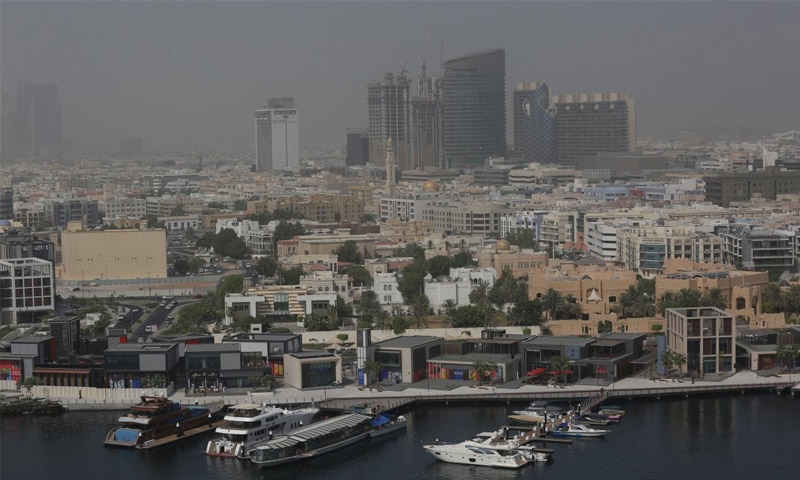Dubai hits rough patch as markets slump
Dubai : In Dubai’s posh Jumeirah Beach Residence district, luxury apartment rents are down about 15 percent from a year ago - a sign, some fear, that the wealthy emirate’s recipe for economic success is getting stale. For over two decades, Dubai prospered as one of the world’s most international cities, attracting people and capital from across the globe.
Nine years ago, it needed a $20 billion bailout from Abu Dhabi to escape a debt crisis caused by collapsing property prices. Dubai’s economy roared back and has grown by a third since then, buoyed by foreign trade, tourism and its status as the main regional hub for business services.
Now, however, Dubai is hitting another rough patch. Residential property prices have dropped by more than 15 percent since late 2014 and are still falling. The stock market is down 13 percent this year, the worst performance in the region. Dubai issued 4,722 new business licenses in the second quarter of 2018, down 26 percent from the same period in 2016, the year when new licenses peaked.
The falls may be temporary, the result of an economic slowdown in the Gulf caused by low oil prices. But other figures suggest some of Dubai’s traditional growth engines are losing steam, which could mean a long-term slump. Growth in passenger traffic through Dubai’s international airport has fallen to near zero this year, after 15 years of strong increases. Increasingly long-range aircraft may loosen Dubai’s dominance as a travel hub connecting Asia and Europe.
Official data shows Dubai’s population continuing to expand, by 3.5 percent to 3.08 million in the first half of 2018. But most growth in recent years has been in lower-paid construction and services jobs, not in higher-paid white-collar posts. “Perhaps the era when one could move to Dubai to make one’s wealth is passing,” said Hasnain Malik, Dubai-based global head of equity research and strategy at Exotix Capital.
He said the city was increasingly attractive as a base for rich people from around the world who wished to enjoy their wealth. But it is not clear that Dubai’s transport industries and business zones can continue growing fast enough to attract, and retain, the number of foreign white-collar workers needed to support demand in its real estate market, Malik said.
Related Posts

